Competing for Great Employees
Bad news for employers. The economy is getting better. Affordable and talented employees are becoming harder to find. Employees are quitting more now than they have in the last six years. Minimum wage increases have been peppered throughout the United States. Welcome to the competition for great employees.
Poaching has a huge negative connotation, but the reality is that there are only so many places you can find great employees . Either you are preventing great employees from leaving or you will find them working for a competitor. Poaching, for the most part, comes with the territory of healthy competition, but some employers can push the ethical or legal line in the effort to find talent.
Company Culture
If you are reading this looking to see how you can stop losing employees to your competitor, you should be aware that regardless of any legal protections that you may impose, nothing can compare to a healthy, positive working environment. Culture is king.
Legal Issues In Poaching Employees
Generally poaching employees from a competitor is actually legal, but there are few circumstances that can leave the poacher in legal trouble. Understanding these can help you both legally poach employees and prevent your employees being poached.
The restriction on poaching from the competition is centered around agreements (that are valid) between the former employer and employee and the new employer’s involvement in the subject matter of that agreement. For example, an enforceable non-compete or restriction of divulging trade secrets can be an effective defensive tool against being poached.
Interference of a Non-Competition Agreement
Most employers are familiar with non-competition agreements and the restrictions they may impose on employees; however, less familiar is the prospect of being sued for hiring an individual who is bound by a non-compete.
An employer may be held liable for interference with a contractual relationship between employee and his or her former employer. The specific elements of tortious interference of contract (the legal cause of action) differs slightly between state to state, but generally the former employer must prove: (1) the employee had a valid contractual relationship; (2) new employer had knowledge of the contractual relationship; (3) new employer intended to induce employee to breach contract; (4) the contract was in fact breached; and (5) the employer was damaged.
Note: An interference of contract claim will often come even if the plaintiff may not have a valid claim. Threatening or even filing such a claim can scare a new employer from even considering a potential candidate; however, if a former employer feels wronged, there are not many legal alternatives. Though any lawsuit should be taken seriously, be also careful of the possibility that demands from the employee’s former employer may be an empty threat. Sending out empty threats can often backfire resulting in a negative reputation.
A Valid Contractual Relationship
In just about every state except California and Oklahoma, non-compete and similar restrictions of trade for employees are tolerated by local courts. California pretty much prohibits non-compete provisions outright, where other states enforce compete restrictions as long as they are narrowly construed in time, place, and scope.
Perhaps if you are in California or you have a contract that is probably not enforceable in your state you feel that you can ignore the risk of being liable for tortious interference. The risk is that courts are often given the ability to modify the contract agreement in such way to make it valid. For example, a contract’s prohibition for the employee to work within a two hundred mile radius of the previous employer may be modified to thirty miles. In other words, if the defense is that the contract is invalid, the court must determine the contract terms are invalid. Therefore, it is risky to depend upon this defense unless there is clarity that the current terms are not only invalid but even if a court modifies the terms, the contract is still not breached.
Employer’s Knowledge of Non-Compete
The ultimate paradoxical decision is whether you should inquire whether candidates are restricted by non-competes. You may have a defense against a tortious interference claim if you do not, but then you may be blindsided by a cease and desist letter and/or an employee who may be wrapped up in litigation. By screening candidates, you are given the opportunity to fully evaluate the risks compared to putting your head in the sand hoping to stay out of court.
It should also be considered that any employee agreements or offer letters should contain a quick acknowledgement by the employee that he or she is not restricted from entering into the employment relationship with the new employer.
Intentional Inducement to Breach Contract
In some states, courts require wrongful conduct in addition to an intent to induce for breach. In the employment context, the former employer need only show that the new employer had the intent to employ (or continue to employ) the employee despite the employment causing a breach of the non-compete agreement.
Contract Actually Interfered and Caused Damage
Not all non-competes that are breached necessarily cause damage. Economic losses, if proven with certainty, are the primary means for calculated damages, but equitable remedies of an injunction prohibiting the employee from working with the new employer is usually far more beneficial to the former employer as money damages can be very difficult to calculate and prove.
Non-solicitation of Employees and the Duty of Loyalty
Preventing employees from soliciting other employees to jump ship is a great tool from preventing a mass exodus.
Employee Duty of Loyalty During Employment
Without any contract agreement, your employees have a duty of loyalty to his or her employer (in most states). This means that while they are employed, they are prohibited from scheming with other employees to leave their current employer. This is a great fall back if you have a bad apple employee that risks ruining the bunch.
Non-solicitation Agreements After Employment Terminates
Unlike non-compete covenants, non-solicitation of employee clauses are widely enforceable. Note that in some jurisdictions in California, such clauses are somewhat restricted to the extent that it prohibits indirect solicitation of employees, such as public job postings.
Non-solicitation of employee agreements are most helpful in preventing a mass exodus since they will often prohibit for period after employment an employee from directly contacting a former co-worker for purposes of encouraging them to leave and join the new ship; however,such non-solicitation agreements have little power over the competitor from directly soliciting another company’s employees, except of course under an interference of contract theory.
This about Uber’s campaign, so called “Operation Slog“, where the unscrupulous ridesharing service employed its Uber personnel to hire Lyft drivers for a trip in order to have a captive audience to convince the driver to switch to Uber. Though there may be some federal antitrust implications to this, the act of soliciting your competitor’s employees is generally an acceptable practice.
Nondisclosure, Confidentiality and Trade Secret Agreements
This catch-all tool can be an effective and enforceable method in preventing damage that may be caused from an employee being poached by another company. It is also something that needs to be taken seriously if you are the one doing the poaching.
Confidential information and trade secrets are valuable assets of a company and is often the true threat when employees move from one employer to the other. What prevents them from taking all the proprietary information they may have learned and handing it over to a competitor?
A nondisclosure agreement prohibiting the disclosure (or even use) of confidential information or trade secrets is very common place in any employment relationship–though it is not automatic. Such agreements will prevent other employers from misappropriating trade secrets or interfering with a contractual relationship as discussed above.
Misappropriation of Trade Secrets and Violation of Nondisclosure Agreement
Once such information is designated as a trade secret, it comes with great protection under the law. The precise definition of a trade secret vary slightly from state to state, but generally a trade secret is information that (1) is not known to the public; (2) derives independent economic value; and (3) is subject to secrecy, meaning it actually has to be kept secret. Accordingly, not all confidential information falls under the category of a trade secret, but all trade secrets can be considered confidential information in a nondisclosure agreement.
A well-crafted nondisclosure agreement will encompass both trade secrets and other confidential information. Once prohibited, a former employee may be allowed to work with a competitor but may be prohibited from disclosing the valuable trade practices and processes that may give value to that employee.
The inherit problem with relying upon this legal protection is that trade secret law and nondisclosure agreements tend to ignore the realities independent of the law, i.e. a person cannot just “unlearn” information, let alone valuable information. Nondisclosure agreements have more impact as a threat of litigation or one’s conscience then in the court room. Such court cases dealing with a breach or misappropriation is very fact intensive. Having to prove that a certain piece of information not only is within the definition of confidential information in the agreement but also proving that it was improperly disclosed is often very difficult.
No-Poaching Agreements with Competitors
An interesting prospect of preventing poaching is to directly enter into a contractual relationship with your competitors to agree not to poach. Does this seem far reaching? Not for eBay Inc. and Intuit or for Oracle and Google. These companies entered into “no-poaching” agreements restricting the hiring and solicitation of each other’s personnel in certain categories, such as managers or supervisors. Google even tried to make a deal with Facebook, but Facebook refused.
In these cases, these agreements were challenged for their unfair competition (anti-trust) implications. For instance, Oracle and Google allegedly entered into the agreement in order to keep salaries low.
This is not to say that these no-poaching agreements can be enforceable. Making a non-solicitation ancillary to a joint venture or other “legitimate” reason will help make the agreement enforceable. Anti-trust issues may also not apply for smaller companies and industries.
Contact our firm to evaluate your business practice with non-competes and non-solicitation agreements in your jurisdiction.

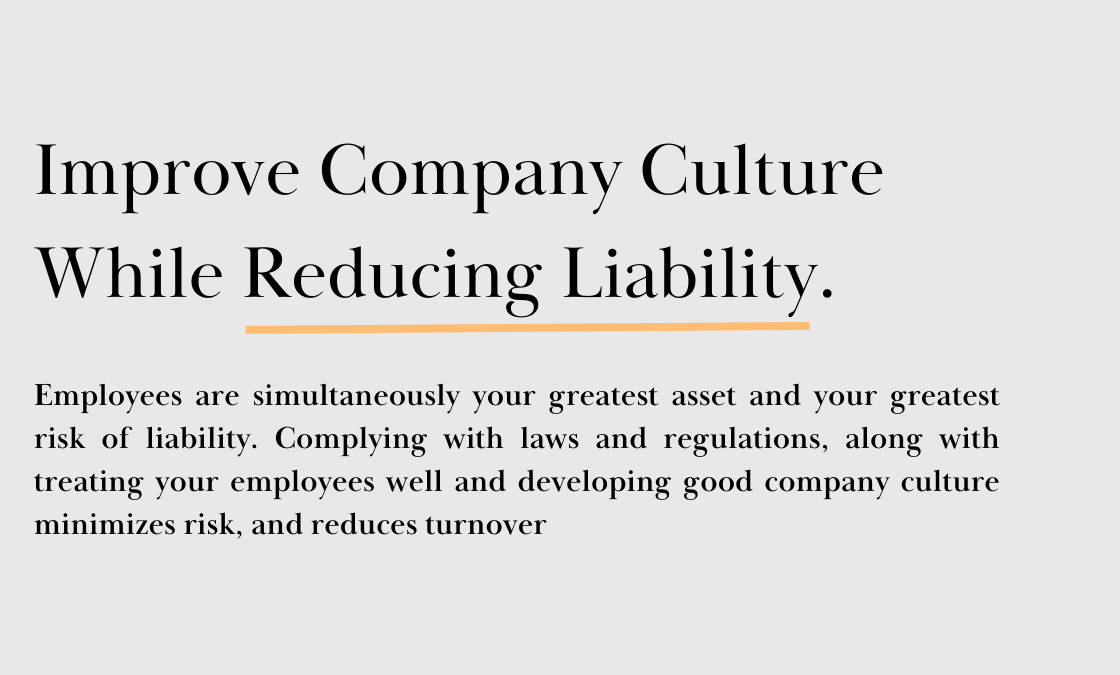
![California v. Texas: Which is Better for Business? [313]](https://www.pashalaw.com/wp-content/uploads/2021/07/Pasha_LSSB_CaliforniaVSTexas-1024x723.jpg)
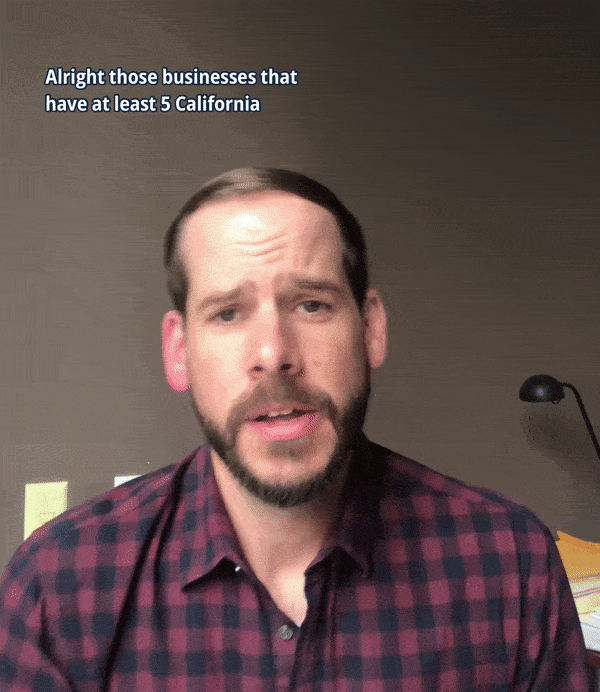
![Employers vs. Employees: When Are Employment Restrictions Fair? [e318]](https://www.pashalaw.com/wp-content/uploads/2022/05/Pasha_LSSB_EmployeesVsEmployers_banner-1-1024x723.jpg)
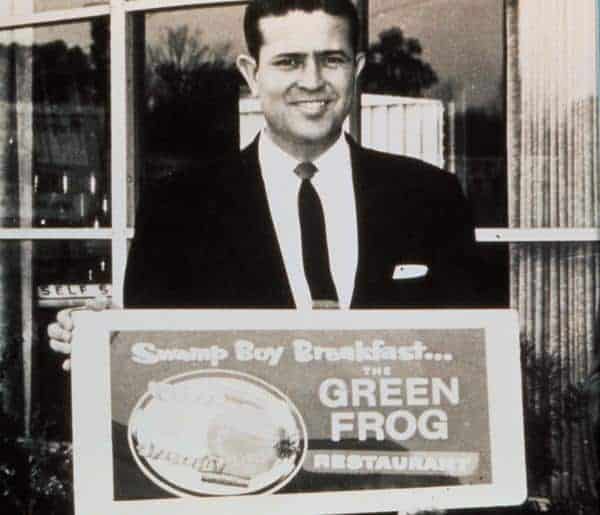
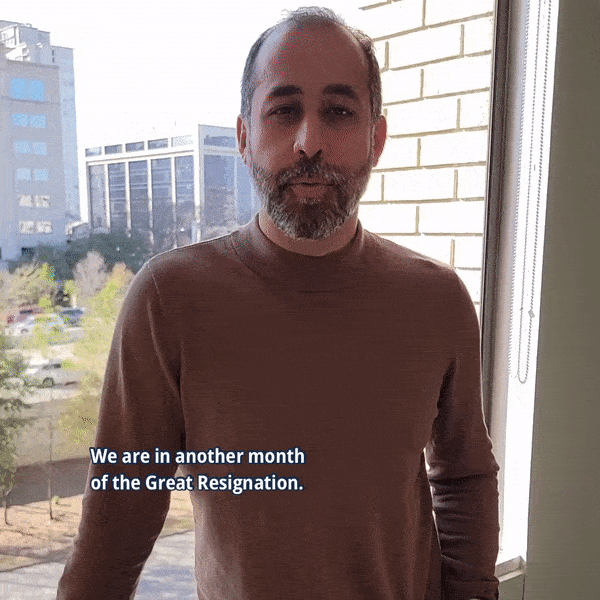
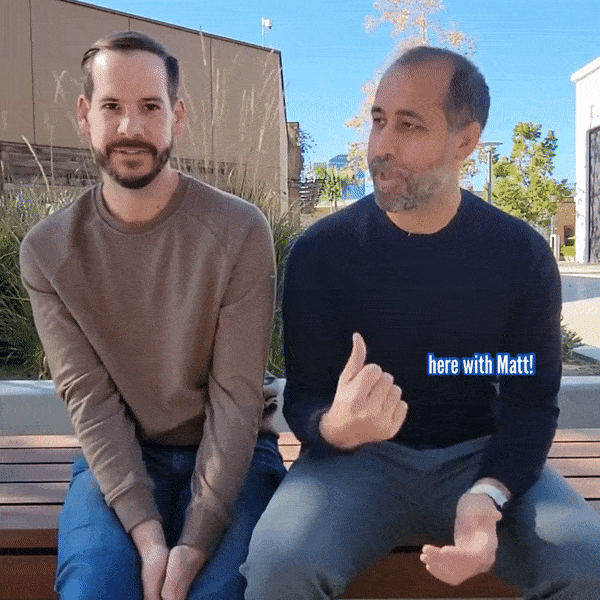
![Defining NDA Boundaries: When does it go too far? [e314]](https://www.pashalaw.com/wp-content/uploads/2021/09/Pasha_LSSB_NDA_WordPress-2-1024x723.jpg)




![Law in the Digital Age: Exploring the Legal Intricacies of Artificial Intelligence [e323]](https://www.pashalaw.com/wp-content/uploads/2023/11/WhatsApp-Image-2023-11-21-at-13.24.49_4a326c9e-300x212.jpg)
![Unraveling the Workforce: Navigating the Aftermath of Mass Layoffs [e322]](https://www.pashalaw.com/wp-content/uploads/2023/07/Untitled-design-23-300x212.png)
![Return to the Office vs. Remote: What Can Employers Legally Enforce? [e321]](https://www.pashalaw.com/wp-content/uploads/2023/01/Pasha_LSSB_321_banner-300x212.jpg)
![Explaining the Hans Niemann Chess Lawsuit v. Magnus Carlsen [e320]](https://www.pashalaw.com/wp-content/uploads/2022/10/LAWYER-EXPLAINS-7-300x169.png)
![California v. Texas: Which is Better for Business? [313]](https://www.pashalaw.com/wp-content/uploads/2021/07/Pasha_LSSB_CaliforniaVSTexas-300x212.jpg)
![Buyers vs. Sellers: Negotiating Mergers & Acquisitions [e319]](https://www.pashalaw.com/wp-content/uploads/2022/06/Pasha_LSSB_BuyersVsSellers_banner-300x212.jpg)
![Employers vs. Employees: When Are Employment Restrictions Fair? [e318]](https://www.pashalaw.com/wp-content/uploads/2022/05/Pasha_LSSB_EmployeesVsEmployers_banner-1-300x212.jpg)
![Vaccine Mandates Supreme Court Rulings [E317]](https://www.pashalaw.com/wp-content/uploads/2022/02/WhatsApp-Image-2022-02-11-at-4.10.32-PM-300x212.jpeg)
![Business of Healthcare [e316]](https://www.pashalaw.com/wp-content/uploads/2021/11/Pasha_LSSB_BusinessofHealthcare_banner-300x212.jpg)
![Social Media and the Law [e315]](https://www.pashalaw.com/wp-content/uploads/2021/10/WhatsApp-Image-2021-10-06-at-1.43.08-PM-300x212.jpeg)
![Defining NDA Boundaries: When does it go too far? [e314]](https://www.pashalaw.com/wp-content/uploads/2021/09/Pasha_LSSB_NDA_WordPress-2-300x212.jpg)
![More Than a Mistake: Business Blunders to Avoid [312] Top Five Business Blunders](https://www.pashalaw.com/wp-content/uploads/2021/06/Pasha_LSSB_Blunders_WP-1-300x212.jpg)
![Is There a Right Way to Fire an Employee? We Ask the Experts [311]](https://www.pashalaw.com/wp-content/uploads/2021/02/Pasha_LSSB_FireAnEmployee_Website-300x200.jpg)
![The New Frontier: Navigating Business Law During a Pandemic [310]](https://www.pashalaw.com/wp-content/uploads/2020/12/Pasha_LSSB_Epidsode308_Covid_Web-1-300x200.jpg)
![Wrap Up | Behind the Buy [8/8] [309]](https://www.pashalaw.com/wp-content/uploads/2020/11/Pasha_BehindTheBuy_Episode8-300x200.jpg)
![Is it all over? | Behind the Buy [7/8] [308]](https://www.pashalaw.com/wp-content/uploads/2020/09/iStock-1153248856-overlay-scaled-300x200.jpg)
![Fight for Your [Trademark] Rights | Behind the Buy [6/8] [307]](https://www.pashalaw.com/wp-content/uploads/2020/07/Fight-for-your-trademark-right-300x200.jpg)
![They Let It Slip | Behind the Buy [5/8] [306]](https://www.pashalaw.com/wp-content/uploads/2020/06/Behind-the-buy-they-let-it-slip-300x200.jpg)
![Mo’ Investigation Mo’ Problems | Behind the Buy [4/8] [305]](https://www.pashalaw.com/wp-content/uploads/2020/05/interrobang-1-scaled-300x200.jpg)
![Broker or Joker | Behind the Buy [3/8] [304] Behind the buy - Broker or Joker](https://www.pashalaw.com/wp-content/uploads/2020/04/Joker-or-Broker-1-300x185.jpg)
![Intentions Are Nothing Without a Signature | Behind the Buy [2/8] [303]](https://www.pashalaw.com/wp-content/uploads/2020/04/intentions-are-nothing-without-a-signature-300x185.jpg)
![From First Steps to Final Signatures | Behind the Buy [1/8] [302]](https://www.pashalaw.com/wp-content/uploads/2020/04/first-steps-to-final-signatures-300x185.jpg)
![The Dark-side of GrubHub’s (and others’) Relationship with Restaurants [e301]](https://www.pashalaw.com/wp-content/uploads/2015/04/When-Competition-Goes-Too-Far-Ice-Cream-Truck-Edition-300x201.jpg)
![Ultimate Legal Breakdown of Internet Law & the Subscription Business Model [e300]](https://www.pashalaw.com/wp-content/uploads/2019/05/Ultimate-Legal-Breakdown-of-Internet-Law-the-Subscription-Business-Model-300x196.jpg)
![Why the Business Buying Process is Like a Wedding?: A Legal Guide [e299]](https://www.pashalaw.com/wp-content/uploads/2019/03/futura-300x169.jpg)
![Will Crowdfunding and General Solicitation Change How Companies Raise Capital? [e298]](https://www.pashalaw.com/wp-content/uploads/2018/11/Will-Crowdfunding-and-General-Solicitation-Change-How-Companies-Raise-Capital-300x159.jpg)
![Pirates, Pilots, and Passwords: Flight Sim Labs Navigates Legal Issues (w/ Marc Hoag as Guest) [e297]](https://www.pashalaw.com/wp-content/uploads/2018/07/flight-sim-labs-300x159.jpg)
![Facebook, Zuckerberg, and the Data Privacy Dilemma [e296] User data, data breach photo by Pete Souza)](https://www.pashalaw.com/wp-content/uploads/2018/04/data-300x159.jpg)
![What To Do When Your Business Is Raided By ICE [e295] I.C.E Raids business](https://www.pashalaw.com/wp-content/uploads/2018/02/ice-cover-300x159.jpg)
![General Contractors & Subcontractors in California – What you need to know [e294]](https://www.pashalaw.com/wp-content/uploads/2018/01/iStock-666960952-300x200.jpg)
![Mattress Giants v. Sleepoplis: The War On Getting You To Bed [e293]](https://www.pashalaw.com/wp-content/uploads/2017/12/sleepopolis-300x159.jpg)
![The Harassment Watershed [e292]](https://www.pashalaw.com/wp-content/uploads/2017/12/me-2-300x219.jpg)
![Investing and Immigrating to the United States: The EB-5 Green Card [e291]](https://www.pashalaw.com/wp-content/uploads/2012/12/eb-5-investment-visa-program-300x159.jpg)
![Responding to a Government Requests (Inquiries, Warrants, etc.) [e290] How to respond to government requests, inquiries, warrants and investigation](https://www.pashalaw.com/wp-content/uploads/2017/10/iStock_57303576_LARGE-300x200.jpg)
![Ultimate Legal Breakdown: Employee Dress Codes [e289]](https://www.pashalaw.com/wp-content/uploads/2017/08/Ultimate-Legal-Breakdown-Template-1-300x159.jpg)
![Ultimate Legal Breakdown: Negative Online Reviews [e288]](https://www.pashalaw.com/wp-content/uploads/2017/06/Ultimate-Legal-Breakdown-Online-Reviews-1-300x159.jpg)
![Ultimate Legal Breakdown: Social Media Marketing [e287]](https://www.pashalaw.com/wp-content/uploads/2017/06/ultimate-legal-breakdown-social-media-marketing-blur-300x159.jpg)
![Ultimate Legal Breakdown: Subscription Box Businesses [e286]](https://www.pashalaw.com/wp-content/uploads/2017/03/ultimate-legal-breakdown-subscription-box-services-pasha-law-2-300x159.jpg)
![Can Companies Protect Against Foreseeable Misuse of Apps [e285]](https://www.pashalaw.com/wp-content/uploads/2017/01/iStock-505291242-300x176.jpg)
![When Using Celebrity Deaths for Brand Promotion Crosses the Line [e284]](https://www.pashalaw.com/wp-content/uploads/2017/01/celbrity-300x159.png)
![Are Employers Liable When Employees Are Accused of Racism? [e283] Racist Employee](https://www.pashalaw.com/wp-content/uploads/2016/12/Are-employers-liable-when-an-employees-are-accused-of-racism-300x159.jpg)
![How Businesses Should Handle Unpaid Bills from Clients [e282] What to do when a client won't pay.](https://www.pashalaw.com/wp-content/uploads/2016/12/How-Businesses-Should-Handle-Unpaid-Bills-to-Clients-300x159.png)
![Can Employers Implement English Only Policies Without Discriminating? [e281]](https://www.pashalaw.com/wp-content/uploads/2016/11/Can-Employers-Impliment-English-Only-Policies-Without-Discriminating-300x159.jpg)
![Why You May No Longer See Actors’ Ages on Their IMDB Page [e280]](https://www.pashalaw.com/wp-content/uploads/2016/10/IMDB-AGE2-300x159.jpg)
![Airbnb’s Discrimination Problem and How Businesses Can Relate [e279]](https://www.pashalaw.com/wp-content/uploads/2016/09/airbnb-300x159.jpg)
![What To Do When Your Amazon Account Gets Suspended [e278]](https://www.pashalaw.com/wp-content/uploads/2016/09/What-To-Do-When-Your-Amazon-Account-Gets-Suspended-1-300x200.jpg)
![How Independent Artists Reacted to Fashion Mogul Zara’s Alleged Infringement [e277]](https://www.pashalaw.com/wp-content/uploads/2016/08/How-Independent-Artists-Reacted-to-Fashion-Mogul-Zaras-Alleged-Infringement--300x159.jpg)
![Can Brave’s Ad Replacing Software Defeat Newspapers and Copyright Law? [e276]](https://www.pashalaw.com/wp-content/uploads/2016/08/Can-Braves-Ad-Replacing-Software-Defeat-Newspapers-and-Copyright-Law-300x159.jpg)
![Why The Roger Ailes Sexual Harassment Lawsuit Is Far From Normal [e275]](https://www.pashalaw.com/wp-content/uploads/2016/07/WHY-THE-ROGER-AILES-SEXUAL-HARASSMENT-LAWSUIT-IS-FAR-FROM-NORMAL-300x159.jpeg)
![How Starbucks Turned Coveted Employer to Employee Complaints [e274]](https://www.pashalaw.com/wp-content/uploads/2016/07/iStock_54169990_LARGE-300x210.jpg)
